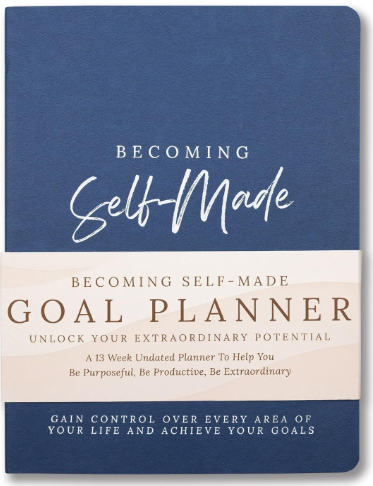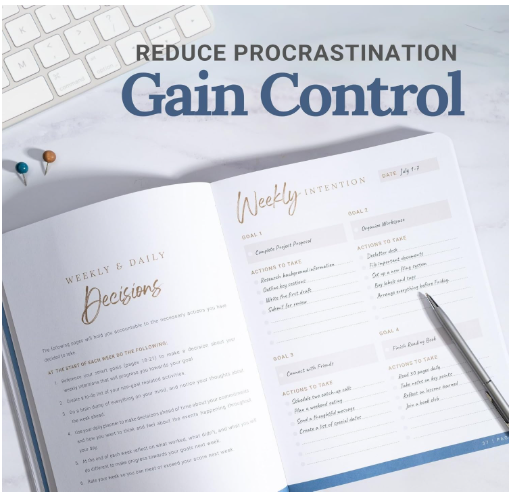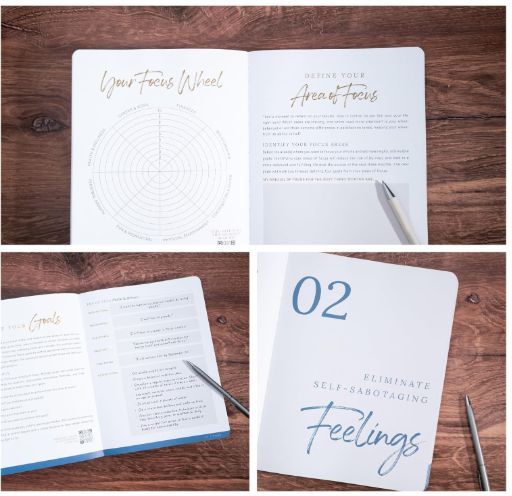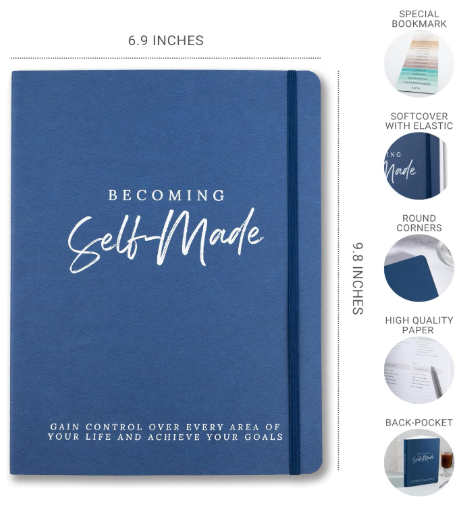Self-discipline is often regarded as the bridge between goals and accomplishments. It’s the vital skill that allows entrepreneurs, students, and professionals to consistently put in the effort required to achieve their aspirations. Yet, it remains one of the most misunderstood and elusive personal attributes.
But here’s the good news: self-discipline is not an innate talent; it’s a skill anyone can develop. We will explore what self-discipline is, why it matters, and, most importantly, how you can cultivate it to achieve success in both your personal and professional life. By the end, you’ll have actionable tips to start building your self-discipline while understanding why it’s the key to long-lasting fulfillment.
Why Self-Discipline Matters
Self-discipline is the foundation for achieving long-term success in all areas of life. It empowers you to control your emotions, desires, and actions, ensuring you stay on track even when faced with distractions or a lack of motivation. Without self-discipline, progress stalls, and goals become harder to reach. But the consequences of its absence extend further:
- Fear of Failure: A lack of discipline can lead to avoidance of difficult tasks, fostering missed opportunities and eroding self-confidence.
- Procrastination: Discipline helps tackle small tasks before they snowball into overwhelming obstacles, but without it, procrastination takes over.
- Loss of Direction: Self-discipline ensures that your daily actions align with your long-term goals. Without it, life may feel disorganized and purposeless.
- Health Decline: Failing to establish a disciplined routine can harm both your physical and mental wellness, from poor nutrition to increased stress levels.
Self-discipline is a skill you can build. Start with small, consistent actions that align with your larger aspirations. Create habits, set clear priorities, and hold yourself accountable. By cultivating self-discipline, you take control of your future, creating a life of purpose and fulfillment.
Master Self-Discipline with The 90-Day Goal Planner for Success
Building a Foundation for Self-Discipline
Developing self-discipline begins with cultivating a mindset that prioritizes growth, balance, and long-term fulfillment over instant gratification. It is a practice built over time, requiring commitment and a strong foundation rooted in self-awareness.
Recognize Your Value
To cultivate self-discipline effectively, start by recognizing your inherent worth. Believing in your value motivates you to establish habits that align with your purpose and aspirations. When you truly value yourself, you naturally prioritize activities that enhance your quality of life—whether it’s organizing your surroundings, nurturing your health, investing in relationships, or strengthening financial stability.
Self-discipline stems from self-respect. It’s not about punishing yourself or adhering to rigid rules; rather, it’s an act of deep care. Caring enough about yourself to make intentional choices builds the foundation for your well-being, growth, and success. By embedding this mindset, you’ll find it easier to create habits that align with your core values.
Starts Early in Life
The connection between self-discipline and confidence starts early in life. Many of us encounter discipline as children through structured routines like completing homework before playing or adhering to bedtime rules. These seemingly simple experiences teach delayed gratification and the rewards that follow consistent effort.
The same principles carry into adulthood. Whether you’re striving for personal or professional goals—like pursuing higher education, advancing a career, or learning something new—self-discipline keeps you on track. Making deliberate, incremental effort fosters momentum and yields tangible results over time, reaffirming your belief in your capabilities. Each milestone achieved through discipline builds confidence in your ability to tackle larger challenges.
Aligning Discipline with Purpose
While cultivating self-discipline is essential, it becomes truly sustainable when aligned with a sense of purpose. Ask yourself why you’re pursuing specific goals and how they contribute to long-term fulfillment. When the “why” behind your actions resonates deeply, the effort no longer feels like a strain—it transforms into an intentional step toward a meaningful life.
Unlock Your Potential: Self-Discipline Strategies with Expert Coaching Prompts
Practical Steps to Cultivate Self-Discipline
Developing self-discipline doesn’t need to be an overwhelming process. It’s about fostering consistent habits that align with your values and goals, allowing you to tackle life with confidence and purpose. Below are actionable steps to build self-discipline effectively:
1. Find Your Motivation
Understanding the “why” behind your goals is crucial for self-discipline.
Start by exploring these questions:
- What achievements will make me proud one year from now?
- What current habits are undermining my progress?
- How will achieving my goals positively impact my life?
Tip: Write down your responses to these questions and keep them visible. Your motivations become a beacon for when the path feels difficult.
2. Start Small and Stay Consistent
Attempting a complete lifestyle overhaul often leads to burnout. Instead, focus on small, but impactful, adjustments.
Examples:
- Fitness Goals: Begin with 5–10 minutes of movement daily instead of committing to intense workout sessions right away.
- Dietary Habits: Swap one unhealthy snack for a nutritious alternative instead of changing your entire diet overnight.
By taking these manageable steps, you build momentum and strengthen your self-discipline over time.
3. Practice, Fail, and Try Again
Failure is a natural and inevitable part of the process. The key to self-discipline lies in your response to setbacks.
When you stumble:
- Forgive yourself.
- Evaluate what led to the situation.
- Recommit to your plan with renewed determination.
Important: Setbacks don’t define your success; your willingness to keep going does. Self-discipline thrives on persistence, not perfection.
Achieve Lasting Habits and Goals with the Self-Discipline Planner
4. Cultivate Mindfulness
Mindfulness can help you combat procrastination and distractions. It fosters awareness of thoughts and behaviors that stray from your goals.
Ask yourself:
- What’s driving me to avoid this task?
- How will I feel after completing it versus ignoring it?
This practice redirects your mind and encourages disciplined choices, allowing you to refocus on tasks that matter most.
5. Track Progress Regularly
Consistency becomes more manageable when you monitor and celebrate progress regularly. Consider tracking your habits using a bullet journal, planner, or mobile app.
Examples of logs:
- “Completed 10 minutes of meditation today.”
- “Read 20 pages of a book.”
- “Worked on business goals for 30 minutes.”
Each small win feeds your motivation and reinforces the value of self-discipline.
6. Reward Yourself
Positive reinforcement is an essential part of establishing self-discipline. Set milestones and celebrate them!
Ideas for rewards:
- Take yourself out for a meal after one week of consistent workouts.
- Indulge in your favorite TV show after completing a key project or task.
These rewards reinforce good habits and boost your mental and emotional energy to continue discipline-related efforts.
The Ultimate Goal Setting Journal to Strengthen Self-Discipline and Focus
7. Practice Self-Compassion
Self-discipline doesn’t mean pushing yourself beyond sustainable limits. Practicing self-compassion can actually strengthen your ability to stay on track.
Tips for compassionate self-discipline:
- Remind yourself that setbacks are normal.
- Allow time for rest and rejuvenation without guilt.
- Affirm that growth takes time, and progress—no matter how small—is still progress.
By incorporating these strategies into your daily life, you’ll gradually build the self-discipline needed to achieve your aspirations. Remember that true discipline involves a balance of effort, mindfulness, and self-care. Focus on small, consistent changes, and over time, you’ll unlock a life of greater purpose and fulfillment.
The True Nature of Self-Discipline and Self-Care
Contrary to popular belief, self-discipline isn’t about depriving yourself. It’s about building habits that enhance your life in the long term. Rather than seeing self-discipline as restricting pleasure, it’s more accurate to view it as a pathway to a more balanced and fulfilling life. True self-care goes hand-in-hand with self-discipline when it is approached as a practice for sustained well-being, not just temporary indulgence. Self-care extends beyond fleeting treats like massages or Netflix marathons. While these comforts have their place, self-care grounded in self-discipline fosters a lasting sense of energy, focus, and contentment. Here are some disciplined habits to incorporate into your routine for long-term benefits:
- Exercising regularly to improve physical health, boost energy levels, and release mood-enhancing endorphins.
- Practicing gratitude to shift your mindset, reduce stress, and nurture mental clarity and positivity.
- Setting boundaries to protect your time, energy, and emotional well-being, promoting healthier relationships.
- Prioritizing quality sleep to maintain focus, enhance productivity, and support overall health.
- Eating nourishing foods consistently to fuel your body and mind for optimal performance.
When self-discipline is paired with these practices, it can transform the way you approach your goals. Imagine feeling not only productive but also fulfilled and mindful every day.
A Sustainable Approach
By seeing self-discipline as an act of self-care, you can reframe your daily habits into opportunities for growth. Small, consistent changes—like making time for exercise or creating a gratitude practice—can compound into significant results over time. When you align self-discipline with the values of self-care, you unlock a life filled with purpose, balance, and harmony.

It’s Time to Build Your Growth Mindset
Self-discipline is more than just a skill; it’s a mindset. It’s the conscious choice to pursue growth despite challenges, and it’s a trait that anyone can cultivate with persistence, effort, and self-reflection.
If you’re ready to unlock your full potential and develop the tools to succeed, check out my online program, ‘Growth Mindset for Success: Build Confidence, Impact & Fulfillment’. My program is packed with actionable strategies to help you build lasting habits, overcome self-doubt, and achieve your biggest goals.
Don’t just imagine a more disciplined, successful version of yourself. Take the first step toward making it a reality today!








